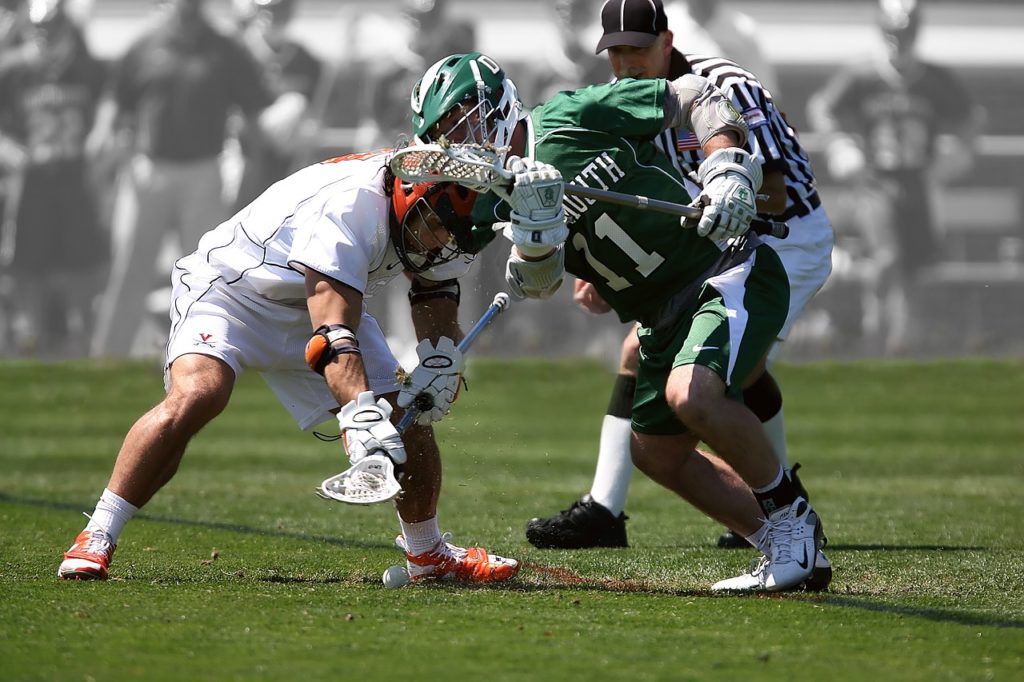- Calls to this hotline are currently being directed to Within Health, Fay or Eating Disorder Solutions
- Representatives are standing by 24/7 to help answer your questions
- All calls are confidential and HIPAA compliant
- There is no obligation or cost to call
- Eating Disorder Hope does not receive any commissions or fees dependent upon which provider you select
- Additional treatment providers are located on our directory or samhsa.gov
Compulsive Exercise In the College Athlete

Collegiate sports are often quite demanding on the student athlete, demanding not only excellence in physical performance, but the need to juggle a demanding schedule with all other aspects of being a college student.
For the college student who may be receiving an academic scholarship based on their athletic performance, the added pressures to perform in addition to maintaining coursework can be overwhelming and difficult to manage.
The Effects of a Heightened Schedule
Many collegiate sports, regardless of the activity, require hours of practice and training on a daily basis. Student athletes often have rigorous training schedules that are physically demanding on the body and mind.
Students who participate in sports on the collegiate level are often in class for the large part of the day and spend the rest of their time training for their sport. This may include time spent in the gym, strengthening exercise, endurance training, and much more.
Finding Your Identity
College athletes who are required to meet these standards of exercise and who do so successfully are often rewarded when it comes to competition. Breaking a new record, reaching a new goal, helping a team win and achieve are all rewarding aspects to a college student who has dedicated so much time and effort into a college sport.
 Many student athletes often find their identity in their sport or in what they are able to achieve as an athlete on the collegiate level, and this can be invigorating to continue through the many demands they may face.
Many student athletes often find their identity in their sport or in what they are able to achieve as an athlete on the collegiate level, and this can be invigorating to continue through the many demands they may face.
What if exercise is taken to an extreme or done compulsively? Some student athletes may become so obsessed with their sport or training that it literally consumes every part of their life.
For a student athlete, this may be hard to distinguish from normal levels of training that are expected from a student, and an athlete who is obsessed with exercising may even be praised for their efforts by teammates and coaches.
Recognizing Excessive Exercise
Understanding how to recognize excessive exercise is important for early intervention, as this can lead to potentially complications in a college athlete. While too much exercise does not appear like something that could be harmful or that could create adverse effects, there are dangers to compulsive and/or excessive exercise.
Team coaches may perhaps be among the first to recognize or become aware of these behaviors among their athletes, and understanding the behaviors associated with compulsive exercise can be life-saving.
If a college student is exercising beyond what is required of them for training purposes, this should be a concerning behavior that is looked at more closely. As college sports are often already time-consuming and demanding, an athlete who is continuing to exercise in addition to training that has already been completed for their sport may indicate a more servere problem is at hand.

In addition, any athlete who continues to exercise or work out when sick or injured may also be revealing an imbalance with exercise and can potentially cause further damage to their bodies.
While it is expected that college sports will take significant time in a student’s life, compromising social functions, academics, relationships, and overall well-being to exercise are also indicative of a more serious problem.
For example, a student who is struggling with compulsive exercise may be prone to missing out on social functions or isolating from friends/family in order to continue exercising. A student struggling with compulsive exercise will also experience guilt or shame for missing a workout or not exercising to their standard.
If you or someone you care for has exhibited any signs or symptoms of compulsive exercise, be sure to talk to someone you trust for help. If left untreated, compulsive exercise can be detrimental to a college student, physically, mentally, emotionally, socially and more.
Learning to find moderation with exercise is an important aspect of recovering from compulsive exercise, as well as addressing an underlying issues that may be connected with this issue.
 About the Author: Crystal is a Masters-level Registered Dietitian Nutritionist (RDN) with a specialty focus in eating disorders, maternal/child health and wellness, and intuitive eating. Combining clinical experience with a love of social media and writing, Crystal serves as the Special Projects Coordinator for Eating Disorder Hope/Addiction Hope, where her passion to help others find recovery and healing is integrated into each part of her work.
About the Author: Crystal is a Masters-level Registered Dietitian Nutritionist (RDN) with a specialty focus in eating disorders, maternal/child health and wellness, and intuitive eating. Combining clinical experience with a love of social media and writing, Crystal serves as the Special Projects Coordinator for Eating Disorder Hope/Addiction Hope, where her passion to help others find recovery and healing is integrated into each part of her work.
As a Certified Intuitive Eating Counselor, Crystal has dedicated her career to helping others establish a healthy relationship with food and body through her work with EDH/AH and nutrition private practice.
The opinions and views of our guest contributors are shared to provide a broad perspective of eating disorders. These are not necessarily the views of Eating Disorder Hope, but an effort to offer discussion of various issues by different concerned individuals.
We at Eating Disorder Hope understand that eating disorders result from a combination of environmental and genetic factors. If you or a loved one are suffering from an eating disorder, please know that there is hope for you, and seek immediate professional help.
Reviewed By: Jacquelyn Ekern, MS, LPC on January 31, 2016
Published on EatingDisorderHope.com

The EatingDisorderHope.com editorial team comprises experienced writers, editors, and medical reviewers specializing in eating disorders, treatment, and mental and behavioral health.

